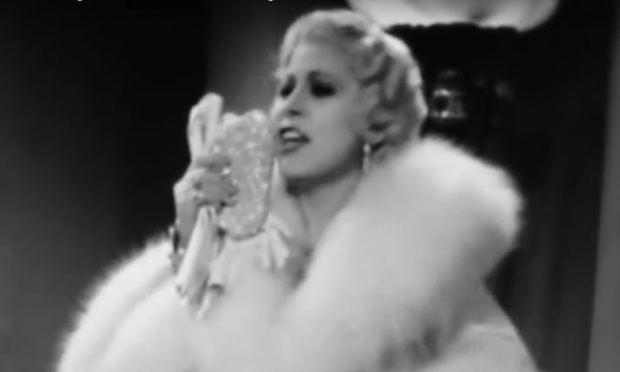Oops! Cruise-Ship Buyer Gets Another Chance to Snag Dramatically Discounted Diamond
A Miami appellate court orders a new breach-of-contract trial for a cruise passenger who still wants to buy a $5 million diamond for the quoted price of $235,000.
January 17, 2018 at 03:56 PM
4 minute read

A man who bought a $5 million diamond for about $230,000 from a cruise-ship jeweler will get another chance to argue a deal's a deal.
In a 2-1 split, Florida's Third District Court of Appeal on Wednesday ordered a new trial because jurors were improperly instructed when they ruled against shopper Thomas DePrince in 2016. The jury found Starboard Cruise Services was allowed to take back the sale because it made a unilateral mistake and was fraudulently induced by DePrince.
Third DCA Judges Robert Luck and Barbara Lagoa ruled the trial court should have entered a directed verdict in DePrince's favor on the fraudulent-inducement issue and remanded for a new trial on the unilateral-mistake defense.
The two-judge majority found the trial court ignored a previous appellate opinion that outlined the proper jury instructions, while the dissenter, Judge Edwin Scales, said the majority was having trouble differentiating between holdings and “nonessential, ancillary, gratuitous language.”
Luck wrote the majority opinion in his characteristic prosaic style, calling the events leading up to the diamond's dramatic underpricing a “comedy of errors.”
“In the 1932 movie 'Night After Night,' a cloakroom attendant comments to Mae West on her ring, 'Goodness, what a lovely diamond!' ” Luck's opinion begins. “ Mae West, in her first movie role, responds: 'Goodness had nothing to do with it.' Goodness, too, had nothing to do with how Thomas DePrince bought his 20-carat diamond.”
While aboard the Starboard ship in 2013, DePrince requested a high-quality, emerald-cut, 15-to-20-carat diamond. The ship's jeweler had no such stone but contacted a supplier and learned of two diamonds meeting the specifications priced at $235,000 and $245,000.
Unbeknownst to Starboard, those prices were per carat. DePrince consulted with his partner and his sister, both gemologists, and realized each diamond's value should be in the millions. He said nothing and paid $235,000. The store quickly realized its mistake and reversed the charge to DePrince's credit card, and he sued for breach of contract.
Starboard initially won a summary judgment order for making a unilateral mistake, but the Third DCA reversed in 2015 and found the trial court needed to use a four-prong unilateral-mistake test. The prongs include whether the mistake was induced by the party seeking to benefit from it and whether there was any negligence on the part of the party seeking to undo the mistake.
Those two prongs were explained in detail in the 2015 appellate decision, but the jury instructions that followed differed significantly, the Third DCA's majority opinion found Wednesday. Miami-Dade Circuit Judge Michael Hanzman ignored language that was “as holding as holding gets,” the majority wrote.
Scales, who said he would affirm the trial court, argued the initial appellate decision did not set precedent on the unilateral-mistake jury instructions. The court's words on the issue were not holdings but instead ancillary language, he wrote.
The Third DCA also ruled Starboard failed to show DePrince fraudulently induced the seller by giving them half-truths and not fully disclosing what he knew as required by law.
“DePrince did not make a factual representation about the quality or quantity of the diamond,” the court ruled. “His statement to the jewelry store manager was an instruction on where he wanted the diamond to be shipped after the purchase, no different than if he asked to have the diamond wrapped in tissue paper with a bow on top or to have a copy of his credit card receipt mailed to his home.”
DePrince's attorneys said in an emailed response that Starboard was not an unsophisticated seller since it operates jewelry shops on about 80 ships. The sales contract stated special mail orders were nonrefundable, the attorneys said.
“If the tables were turned and the consumer learned that he had made a bad deal, we are confident that Starboard would be taking the position that the consumer signed a contract, there is no refund and would seek to enforce the deal,” wrote Robert Cohen and Mario Ruiz of McDonald Hopkins in Miami. “Simply put, Starboard should honor the contract it signed! We are looking forward to presenting the facts to a jury of Mr. DePrince's peers.”
Starboard attorney Eric Isicoff of Isicoff, Ragatz & Koenigsberg in Miami did not respond to a request for comment by deadline.
This content has been archived. It is available through our partners, LexisNexis® and Bloomberg Law.
To view this content, please continue to their sites.
Not a Lexis Subscriber?
Subscribe Now
Not a Bloomberg Law Subscriber?
Subscribe Now
NOT FOR REPRINT
© 2025 ALM Global, LLC, All Rights Reserved. Request academic re-use from www.copyright.com. All other uses, submit a request to [email protected]. For more information visit Asset & Logo Licensing.
You Might Like
View All


U.S. Eleventh Circuit Remands Helms-Burton Trafficking Case Involving Confiscated Cuban Port
3 minute read
Miami Lawyer Guilty of Indirect Criminal Contempt But Dodges Paying Legal Fees
4 minute readTrending Stories
- 1'It's Not Going to Be Pretty': PayPal, Capital One Face Novel Class Actions Over 'Poaching' Commissions Owed Influencers
- 211th Circuit Rejects Trump's Emergency Request as DOJ Prepares to Release Special Counsel's Final Report
- 3Supreme Court Takes Up Challenge to ACA Task Force
- 4'Tragedy of Unspeakable Proportions:' Could Edison, DWP, Face Lawsuits Over LA Wildfires?
- 5Meta Pulls Plug on DEI Programs
Who Got The Work
Michael G. Bongiorno, Andrew Scott Dulberg and Elizabeth E. Driscoll from Wilmer Cutler Pickering Hale and Dorr have stepped in to represent Symbotic Inc., an A.I.-enabled technology platform that focuses on increasing supply chain efficiency, and other defendants in a pending shareholder derivative lawsuit. The case, filed Oct. 2 in Massachusetts District Court by the Brown Law Firm on behalf of Stephen Austen, accuses certain officers and directors of misleading investors in regard to Symbotic's potential for margin growth by failing to disclose that the company was not equipped to timely deploy its systems or manage expenses through project delays. The case, assigned to U.S. District Judge Nathaniel M. Gorton, is 1:24-cv-12522, Austen v. Cohen et al.
Who Got The Work
Edmund Polubinski and Marie Killmond of Davis Polk & Wardwell have entered appearances for data platform software development company MongoDB and other defendants in a pending shareholder derivative lawsuit. The action, filed Oct. 7 in New York Southern District Court by the Brown Law Firm, accuses the company's directors and/or officers of falsely expressing confidence in the company’s restructuring of its sales incentive plan and downplaying the severity of decreases in its upfront commitments. The case is 1:24-cv-07594, Roy v. Ittycheria et al.
Who Got The Work
Amy O. Bruchs and Kurt F. Ellison of Michael Best & Friedrich have entered appearances for Epic Systems Corp. in a pending employment discrimination lawsuit. The suit was filed Sept. 7 in Wisconsin Western District Court by Levine Eisberner LLC and Siri & Glimstad on behalf of a project manager who claims that he was wrongfully terminated after applying for a religious exemption to the defendant's COVID-19 vaccine mandate. The case, assigned to U.S. Magistrate Judge Anita Marie Boor, is 3:24-cv-00630, Secker, Nathan v. Epic Systems Corporation.
Who Got The Work
David X. Sullivan, Thomas J. Finn and Gregory A. Hall from McCarter & English have entered appearances for Sunrun Installation Services in a pending civil rights lawsuit. The complaint was filed Sept. 4 in Connecticut District Court by attorney Robert M. Berke on behalf of former employee George Edward Steins, who was arrested and charged with employing an unregistered home improvement salesperson. The complaint alleges that had Sunrun informed the Connecticut Department of Consumer Protection that the plaintiff's employment had ended in 2017 and that he no longer held Sunrun's home improvement contractor license, he would not have been hit with charges, which were dismissed in May 2024. The case, assigned to U.S. District Judge Jeffrey A. Meyer, is 3:24-cv-01423, Steins v. Sunrun, Inc. et al.
Who Got The Work
Greenberg Traurig shareholder Joshua L. Raskin has entered an appearance for boohoo.com UK Ltd. in a pending patent infringement lawsuit. The suit, filed Sept. 3 in Texas Eastern District Court by Rozier Hardt McDonough on behalf of Alto Dynamics, asserts five patents related to an online shopping platform. The case, assigned to U.S. District Judge Rodney Gilstrap, is 2:24-cv-00719, Alto Dynamics, LLC v. boohoo.com UK Limited.
Featured Firms
Law Offices of Gary Martin Hays & Associates, P.C.
(470) 294-1674
Law Offices of Mark E. Salomone
(857) 444-6468
Smith & Hassler
(713) 739-1250






